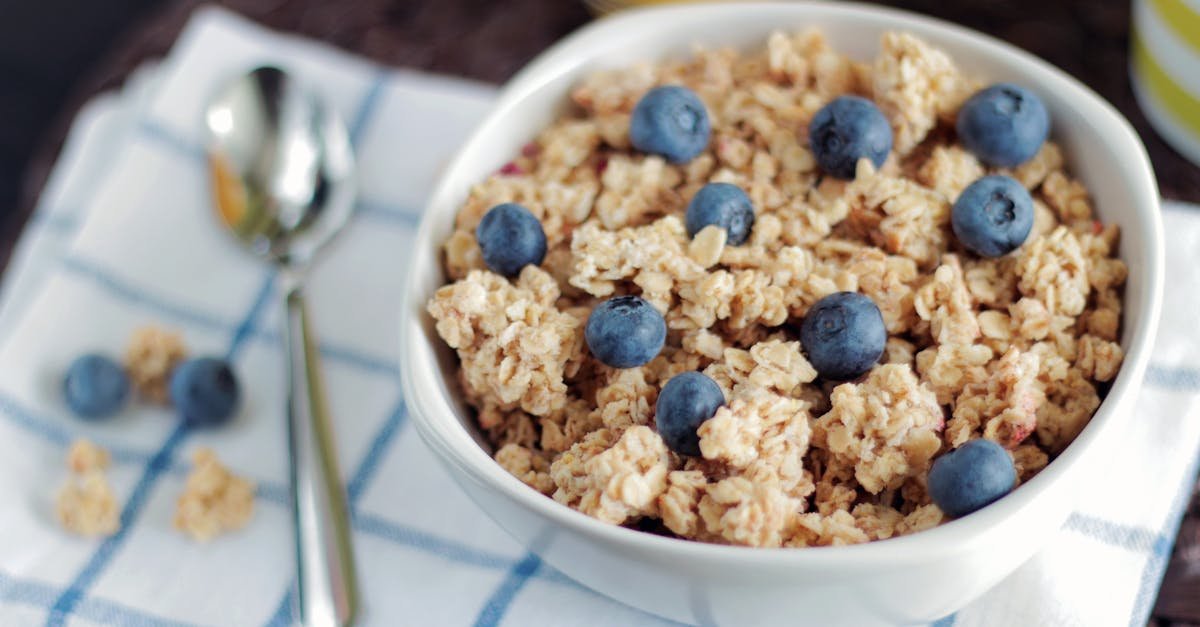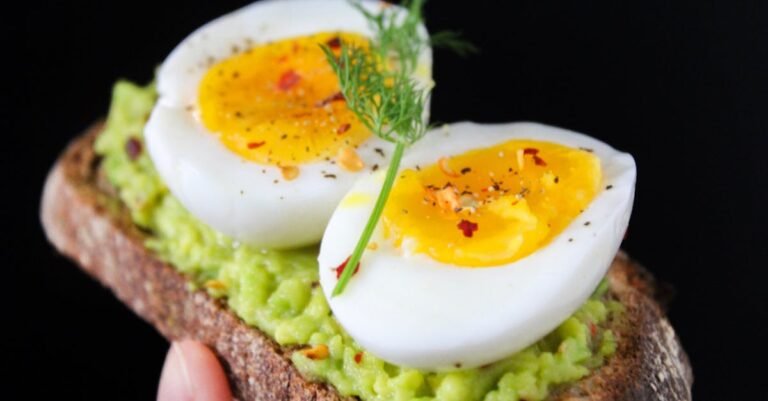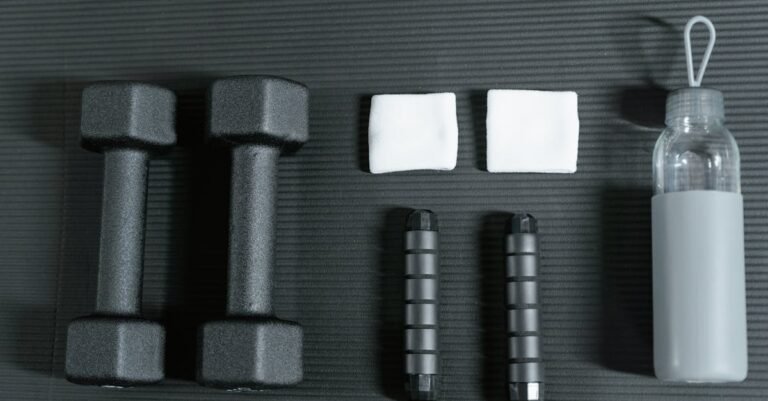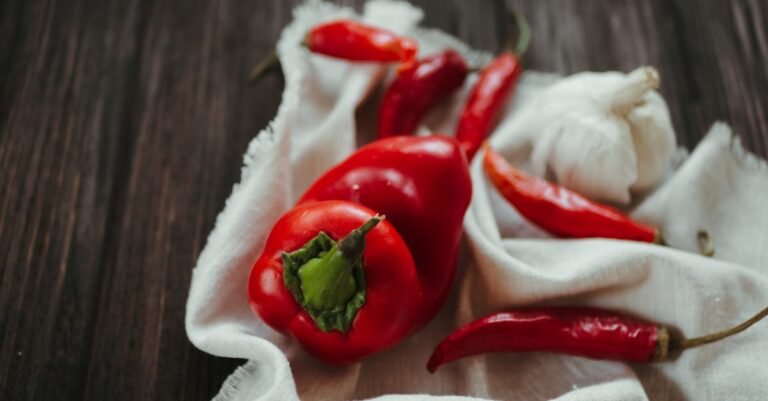Table of Contents
-
Why Snacking Smart Before and After Exercise Matters
-
Pre-Workout Power-Ups: Snacks to Eat Before You Sweat
-
Post-Workout Recovery Fuel: Snacks to Rebuild and Replenish
-
Snack Ideas for Different Workout Types
-
Hydration: Don’t Forget the Fluids!
-
Common Snacking Mistakes to Avoid
-
Conclusion: Snack Smart, Train Hard
-
Frequently Asked Questions (FAQs)
-
FAQ 1: Can I just drink water instead of snacking before a short workout?
-
FAQ 2: Are pre-workout supplements considered snacks?
-
FAQ 3: What if I have dietary restrictions like gluten intolerance or veganism?
-
FAQ 4: How much should I eat for a pre-workout snack?
-
FAQ 5: Is it bad to work out on an empty stomach?
-
Healthy Snack Ideas To Fuel Your Workouts
Hitting the gym, going for a run, or engaging in any physical activity requires energy. Think of your body like a high performance car; you wouldn’t expect it to run efficiently, let alone win a race, on an empty tank or low quality fuel, right? The same principle applies to us! What you eat, especially around your workouts, can significantly impact your performance, endurance, recovery, and overall results. It’s not just about *what* you eat throughout the day, but strategically timing nutritious snacks can be a game changer. Let’s dive into some fantastic, healthy snack ideas that will properly fuel your engine before you sweat and help you recover like a champ afterward.
Why Snacking Smart Before and After Exercise Matters
Have you ever felt sluggish halfway through a workout? Or maybe experienced excessive muscle soreness that lingers for days? Your snacking habits (or lack thereof) might be the culprit. Fueling correctly isn’t just for elite athletes; it’s crucial for anyone looking to get the most out of their physical efforts and feel good doing it.
Eating the right snack before your workout provides the readily available energy needed to power through your session. It helps maintain stable blood sugar levels, preventing that dreaded energy crash mid exercise. This means you can push harder, last longer, and ultimately achieve better results. It’s like giving your body a head start, ensuring the engine is primed and ready to go.
After the workout, your body is in a state of repair and replenishment. Exercise depletes energy stores (glycogen) and causes microscopic damage to muscle fibers (which is necessary for growth!). Post workout snacking helps kickstart the recovery process by replenishing glycogen and providing the building blocks (protein) needed for muscle repair and growth. Skipping this crucial step can lead to prolonged soreness, fatigue, and hinder your progress over time. Think of it as providing the repair crew and refueling the tank after a demanding journey.
The Science Bit: Carbs, Protein, and Timing
Okay, let’s get slightly technical, but keep it simple. Understanding the roles of macronutrients, specifically carbohydrates and protein, and the importance of timing will empower you to make smarter snacking choices.
Carbohydrates: Your Primary Energy Source
Carbohydrates are your body’s preferred fuel source, especially during moderate to high intensity exercise. When you eat carbs, your body breaks them down into glucose. Some glucose is used immediately for energy, while the rest is stored in your muscles and liver as glycogen. During exercise, your body taps into these glycogen stores for power. Think of glycogen as the readily accessible fuel in your muscles’ gas tank.
Simple carbs (like those in fruit or a drizzle of honey) digest quickly and provide a rapid energy boost, making them ideal closer to your workout time. Complex carbs (like oats or whole wheat bread) digest more slowly, providing a more sustained energy release, which is great if you’re eating an hour or two before exercise. Pre workout, focusing on easily digestible carbs helps prevent stomach upset while ensuring energy availability. Post workout, carbs are essential for rapidly refilling those depleted glycogen stores, preparing your muscles for the next challenge.
Protein: The Muscle Repair Crew
While carbs are the primary fuel *during* exercise, protein plays a crucial role *after* exercise. Protein is made up of amino acids, which are the building blocks for muscle tissue. When you exercise, particularly strength training, you create tiny tears in your muscle fibers. Consuming protein post workout provides the necessary amino acids to repair this damage, rebuild stronger muscle tissue, and adapt to the training stimulus. It’s like sending in the construction crew with all the right materials to fix and fortify a structure after stress.
Including a small amount of protein in your pre workout snack isn’t essential for energy like carbs are, but it can help initiate the muscle protein synthesis process and potentially reduce muscle breakdown during longer workouts. However, the main protein focus should generally be post workout.
Timing is Everything: When to Snack
Timing is just as important as *what* you eat. Eating too close to a workout can lead to digestive discomfort like cramps or sluggishness, as your body tries to digest food and exercise simultaneously. Eating too far in advance might mean that the energy boost wears off before you even start sweating.
Pre Workout:
- 1-2 hours before: Aim for a balanced snack containing complex carbohydrates and a moderate amount of protein. This allows ample time for digestion and provides sustained energy.
- 30-60 minutes before: Focus on easily digestible carbohydrates for a quick energy hit. Keep protein and fat low to avoid digestive issues. Think simple and fast acting.
Post Workout:
Aim to have a recovery snack within 30-60 minutes after finishing your workout. This timeframe is often considered optimal for maximizing glycogen replenishment and muscle protein synthesis. While the “anabolic window” isn’t as strict as once believed (more on that later), refueling reasonably soon after exercise is definitely beneficial for recovery.
Pre-Workout Power-Ups: Snacks to Eat Before You Sweat
Alright, let’s talk specifics! What should you actually grab before lacing up your trainers? The goal here is easily digestible energy that won’t sit heavily in your stomach.
Quick & Easy Energy Boosters (30-60 Minutes Before)
If you’re short on time or need a quick top up right before you start, these options are perfect. They provide fast acting carbohydrates without weighing you down.
Bananas: Nature’s Power Bar
Seriously, is there a more perfect pre workout snack? Bananas are packed with easily digestible carbohydrates (fructose and glucose) for quick energy and potassium, an electrolyte lost through sweat that helps prevent muscle cramps. They’re portable, require no preparation, and are generally very easy on the stomach. A medium banana provides around 25-30 grams of carbs, hitting that sweet spot for immediate fuel.
Greek Yogurt with Berries: Protein & Antioxidant Punch
A small serving (say, half a cup) of Greek yogurt provides some protein to stave off hunger and start the muscle sparing process, along with some carbs. Pairing it with a handful of berries (like blueberries or raspberries) adds quick digesting carbs and a dose of antioxidants, which can help combat exercise induced oxidative stress. Opt for plain Greek yogurt to avoid added sugars, and choose low fat if you’re sensitive to fat before exercise. This combo offers a nice balance without being too heavy if consumed about an hour before.
Sustained Release Snacks (1-2 Hours Before)
If you have a bit more time before your workout, you can opt for snacks that provide a more gradual release of energy. This is ideal for longer or more demanding sessions.
Oatmeal with Fruit & Nuts: The Slow Burn Fuel
Oatmeal is a fantastic source of complex carbohydrates, providing slow releasing energy to fuel you through longer workouts. A small bowl made with water or milk (choose low fat if dairy bothers you pre exercise) is ideal. Top it with some sliced banana or berries for extra carbs and a sprinkle of nuts or seeds (like almonds or chia seeds) for a bit of healthy fat and protein. Just don’t go overboard on the toppings, especially fat and fiber, as they slow digestion. This is like putting premium, slow burning logs on the fire – it keeps going steadily.
Whole Wheat Toast with Avocado: Healthy Fats & Complex Carbs
One slice of whole wheat toast provides complex carbs for sustained energy. Topping it with a quarter or half an avocado adds healthy monounsaturated fats, which can contribute to satiety and provide some energy, though fats digest slowly, so keep the portion small if eating closer to your workout. A sprinkle of salt can also help with electrolyte balance. This option offers a good mix of nutrients but is best consumed at least 90 minutes before exercise due to the fat content.
Post-Workout Recovery Fuel: Snacks to Rebuild and Replenish
You’ve crushed your workout – nice work! Now it’s time to give your body what it needs to recover effectively. The focus shifts to replenishing glycogen stores and providing protein for muscle repair.
The “Anabolic Window”: Fact or Fiction? (Focus on Replenishment)
You’ve probably heard about the “anabolic window,” that supposedly magical 30-60 minute period post workout where your body is primed to suck up nutrients like a sponge, maximizing muscle growth and recovery. Is it real? Well, yes and no.
It’s true that your muscles are more sensitive to insulin and nutrient uptake immediately following exercise, making it a good time to refuel. Glycogen synthesis rates are higher, and muscle protein synthesis can be stimulated. However, research suggests this “window” isn’t quite as narrow or critical as previously thought, especially if you’ve had a pre workout meal or snack. The overall intake of protein and carbohydrates throughout the day plays a more significant role in long term muscle growth and recovery.
The bottom line? While you don’t need to sprint from the treadmill to the fridge in panic, consuming a balanced snack containing protein and carbs within an hour or two post workout is still a highly beneficial strategy for optimizing recovery, reducing muscle soreness, and replenishing energy stores. Don’t stress about hitting the 30 minute mark exactly, but don’t wait hours either. Prioritize getting those recovery nutrients in reasonably soon.
Protein Packed Recovery Options
Protein is key for repairing those hard worked muscles. Aim for around 15-25 grams of protein in your post workout snack, combined with carbohydrates.
Chocolate Milk: The Surprising Recovery Drink
It might sound too good to be true, but low fat chocolate milk is often touted as an excellent recovery drink. Why? It has an ideal carbohydrate to protein ratio (typically around 3:1 or 4:1), similar to many commercial recovery drinks. The carbs (from milk lactose and added sugar) help replenish glycogen, while the milk protein (whey and casein) aids muscle repair. Plus, it helps with rehydration and provides electrolytes like calcium and potassium. It’s convenient, relatively inexpensive, and tastes great!
Protein Shake/Smoothie: Customizable & Convenient
A classic for a reason. Protein shakes (using whey, casein, soy, or plant based protein powders) are incredibly convenient and allow you to get a precise dose of protein quickly. Mix your powder with water or milk, and consider adding carbohydrate sources like a banana, oats, or fruit to create a balanced recovery smoothie. This is super customizable based on your needs and preferences. You can blend in spinach for extra nutrients, nut butter for healthy fats (though maybe go easy right after a workout), or chia seeds for fiber and omega 3s.
Hard-Boiled Eggs: Simple & Effective
Eggs are a fantastic source of high quality, complete protein. Two hard boiled eggs provide about 12-14 grams of protein. Pair them with a source of carbohydrates, like a piece of fruit or a few whole grain crackers, for a well rounded recovery snack. They’re easy to prep in advance and keep on hand for a quick, no fuss option.
Carb Replenishment for Glycogen Stores
Remember, your muscles are hungry for carbs after exercise to refill those depleted glycogen tanks. Combining protein with carbs enhances both glycogen storage and muscle protein synthesis.
Sweet Potato: Nutrient Dense Refuel
Baked or roasted sweet potatoes are nutritional powerhouses. They’re packed with complex carbohydrates to restore glycogen, plus vitamins like A and C, and potassium. A medium sweet potato offers around 25-30 grams of carbs. You can eat it plain or top it with a dollop of Greek yogurt or cottage cheese for added protein. It’s a satisfying and incredibly nourishing choice.
Quinoa Salad: Complex Carbs & Plant Protein
Quinoa is a complete protein source (meaning it contains all nine essential amino acids) and also provides complex carbohydrates and fiber. Prepare a small quinoa salad with added veggies (like bell peppers, cucumber, spinach) and perhaps some chickpeas or black beans for extra plant based protein and carbs. A light vinaigrette dressing adds flavor. This makes for a more substantial snack or mini meal, perfect after a longer or more intense workout.
Snack Ideas for Different Workout Types
While the principles of pre and post workout nutrition remain the same, you might want to slightly tailor your snacks based on the type and duration of your workout.
Fueling Endurance: Cardio & Long Duration
For long runs, cycles, or swims (over 60-90 minutes), carbohydrate availability is paramount.
Pre Workout: Focus on easily digestible, carb rich snacks 30-60 minutes before, like a banana, a few dates, or a sports gel. If eating 1-2 hours prior, oatmeal or whole wheat toast are great choices for sustained energy.
During Workout (if needed): For sessions over 90 minutes, consider easily digestible carbs during exercise (e.g., sports drinks, gels, chews, or even small pieces of fruit like orange slices) every 45-60 minutes to maintain energy levels.
Post Workout: Prioritize rapid carb replenishment alongside protein. Chocolate milk, a fruit smoothie with protein powder, or yogurt with granola and fruit are excellent choices.
Powering Strength Training: Lifting & Resistance
Strength training relies on short bursts of power, but overall energy and muscle repair are key.
Pre Workout: A mix of carbs and a small amount of protein 1-2 hours before (like Greek yogurt with berries or toast with avocado) can be beneficial. If eating closer, stick to simple carbs like a banana.
Post Workout: Protein takes center stage here for muscle repair and growth. Aim for that 15-25g protein target combined with carbs within an hour or two. Protein shakes, eggs with toast, or chicken breast with sweet potato work well.
Snacks for HIIT & Intense Bursts
High Intensity Interval Training (HIIT) is incredibly demanding and rapidly depletes glycogen stores.
Pre Workout: Easily digestible carbs are crucial 30-60 minutes before to provide quick energy for those intense bursts. A small banana, a handful of grapes, or a rice cake with a thin layer of jam works well. Avoid anything heavy or slow digesting.
Post Workout: Recovery is vital after HIIT. Focus on a combination of fast acting carbs and protein to quickly replenish glycogen and start muscle repair. A smoothie with fruit and protein powder or Greek yogurt with honey and berries are good options.
Hydration: Don’t Forget the Fluids!
We’ve talked a lot about snacks, but let’s not forget hydration! Water is essential for countless bodily functions, including temperature regulation, nutrient transport, and muscle function. Dehydration can severely impair performance, leading to fatigue, cramps, and dizziness.
Make sure you’re sipping water throughout the day, not just around your workouts. Drink water before, during (especially for longer sessions or in hot weather), and after your exercise. How much? Listen to your body, and check your urine color – pale yellow generally indicates good hydration. While plain water is usually sufficient for workouts under an hour, for longer or more intense sessions, especially in the heat, consider drinks containing electrolytes (like sodium and potassium) to replace what’s lost through sweat. Some snacks, like fruits (watermelon, oranges) and yogurt, also contribute to hydration.
Common Snacking Mistakes to Avoid
Even with the best intentions, it’s easy to make mistakes with workout nutrition. Here are a few common pitfalls to watch out for:
Overeating Before a Workout
Eating too large a snack or meal too close to exercise can divert blood flow to your digestive system instead of your working muscles. This can lead to sluggishness, cramps, nausea, or the dreaded side stitch. Keep pre workout snacks relatively small and focus on easily digestible options, especially if you’re eating within an hour of starting.
Choosing Sugary or Processed Snacks
While simple carbs are good right before a workout, relying on sugary candy bars, pastries, or heavily processed snacks isn’t ideal. These can cause a rapid spike and subsequent crash in blood sugar, leaving you feeling drained mid workout. They also often lack essential nutrients. Stick to whole food sources like fruit, yogurt, or whole grains whenever possible.
Skipping Post-Workout Nutrition
You finished your workout, felt great, and then got busy or just weren’t hungry. Skipping your post workout snack means missing a key opportunity to kickstart recovery. This can lead to increased muscle soreness, slower progress, and potentially leave you feeling depleted for your next session. Make refueling a priority, even if it’s something small and simple like a glass of milk or a protein bar (check the ingredients!).
Conclusion: Snack Smart, Train Hard
Fueling your body correctly around your workouts doesn’t have to be complicated. By understanding the roles of carbohydrates for energy and protein for repair, and by paying attention to timing, you can significantly enhance your performance and recovery. Whether it’s grabbing a banana before a run, blending a protein smoothie after lifting weights, or enjoying some oatmeal an hour before a long cycle, choosing smart, healthy snacks is an investment in your fitness journey.
Listen to your body, experiment to see what works best for you, and remember that consistency is key. Don’t let poor fueling sabotage your hard work in the gym or on the track. Snack smart, stay hydrated, train hard, and enjoy the process of becoming a stronger, fitter you!
Frequently Asked Questions (FAQs)
FAQ 1: Can I just drink water instead of snacking before a short workout?
For shorter, lower intensity workouts (like a 30 minute walk or light yoga session), especially if you’ve eaten a meal within the last few hours, you might be perfectly fine without a pre workout snack. Hydration is always key, so definitely drink water. However, if you’re exercising first thing in the morning after an overnight fast, or if your workout is more moderate in intensity, even a small, easily digestible carb snack (like half a banana) can help top off energy levels and improve performance. Listen to your body – if you feel energized, great! If you feel sluggish, try a small snack next time.
FAQ 2: Are pre-workout supplements considered snacks?
Not really in the traditional sense. Pre workout supplements typically contain stimulants like caffeine, amino acids like beta alanine or citrulline malate, and creatine, designed to enhance energy, focus, and performance acutely. While they serve a purpose related to workout preparation, they don’t provide the foundational macronutrients (carbohydrates for fuel, protein for building blocks) that whole food snacks do. They are a supplement *to* your diet, not a replacement for proper pre workout nutrition. You can use a pre workout supplement *and* have a small carb based snack if your timing allows and your stomach tolerates it.
FAQ 3: What if I have dietary restrictions like gluten intolerance or veganism?
Absolutely! There are plenty of fantastic options.
Gluten Free: Bananas, rice cakes, Greek yogurt (check label), fruit, hard boiled eggs, sweet potatoes, quinoa, certified gluten free oats, and most protein powders are naturally gluten free. Just ensure any packaged snacks are certified GF if you have celiac disease.
Vegan: Bananas, dates, oatmeal (made with water or plant milk), toast with peanut butter or avocado, fruit smoothies with plant based protein powder (soy, pea, rice), quinoa salad with beans, sweet potatoes, edamame, or a handful of nuts and seeds (allow more digestion time for nuts). There’s a huge variety of plant based choices!
FAQ 4: How much should I eat for a pre-workout snack?
This depends on how close to your workout you’re eating and your individual tolerance. A general guideline:
1-2 hours before: Aim for around 200-400 calories, primarily from complex carbohydrates with some protein (e.g., oatmeal with fruit and nuts, yogurt with granola).
30-60 minutes before: Keep it smaller and simpler, around 100-200 calories, focusing on easily digestible carbs (e.g., a medium banana, a few dates, a slice of toast with jam).
Avoid large amounts of fat and fiber close to exercise. Experiment to find the amount and timing that makes you feel energized without causing digestive upset.
FAQ 5: Is it bad to work out on an empty stomach?
Working out “fasted” (typically first thing in the morning before eating) is a popular strategy, particularly for fat loss, though the benefits are debated. For low to moderate intensity cardio of shorter duration (under an hour), it’s generally safe and may work well for some individuals. However, for high intensity training, strength training, or longer endurance sessions, performance can suffer significantly without pre workout fuel. You might feel weaker, fatigue faster, and potentially risk muscle breakdown as your body seeks energy. It really depends on the type/intensity of workout and individual preference. If you choose to train fasted, ensure your post workout recovery nutrition is on point.









